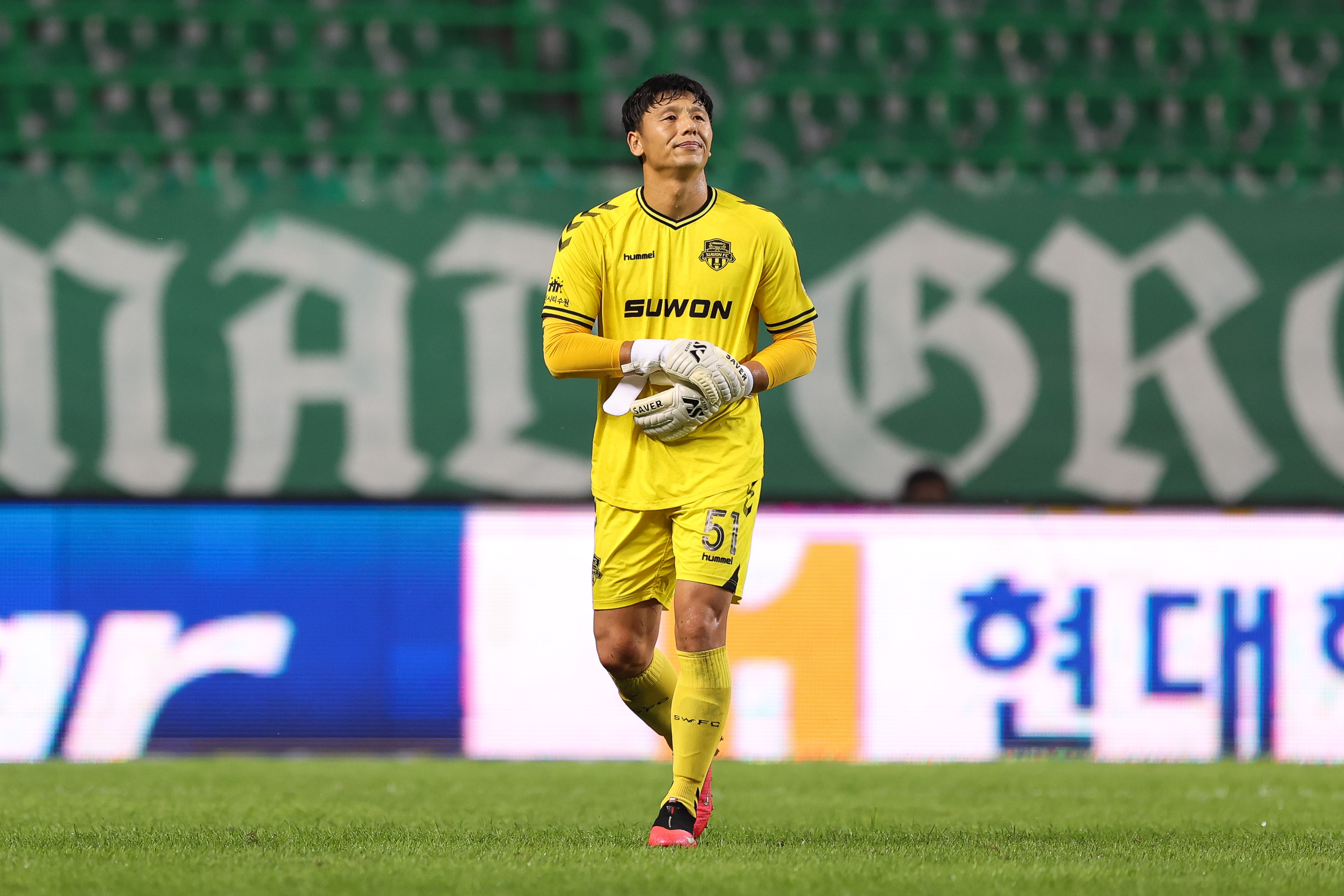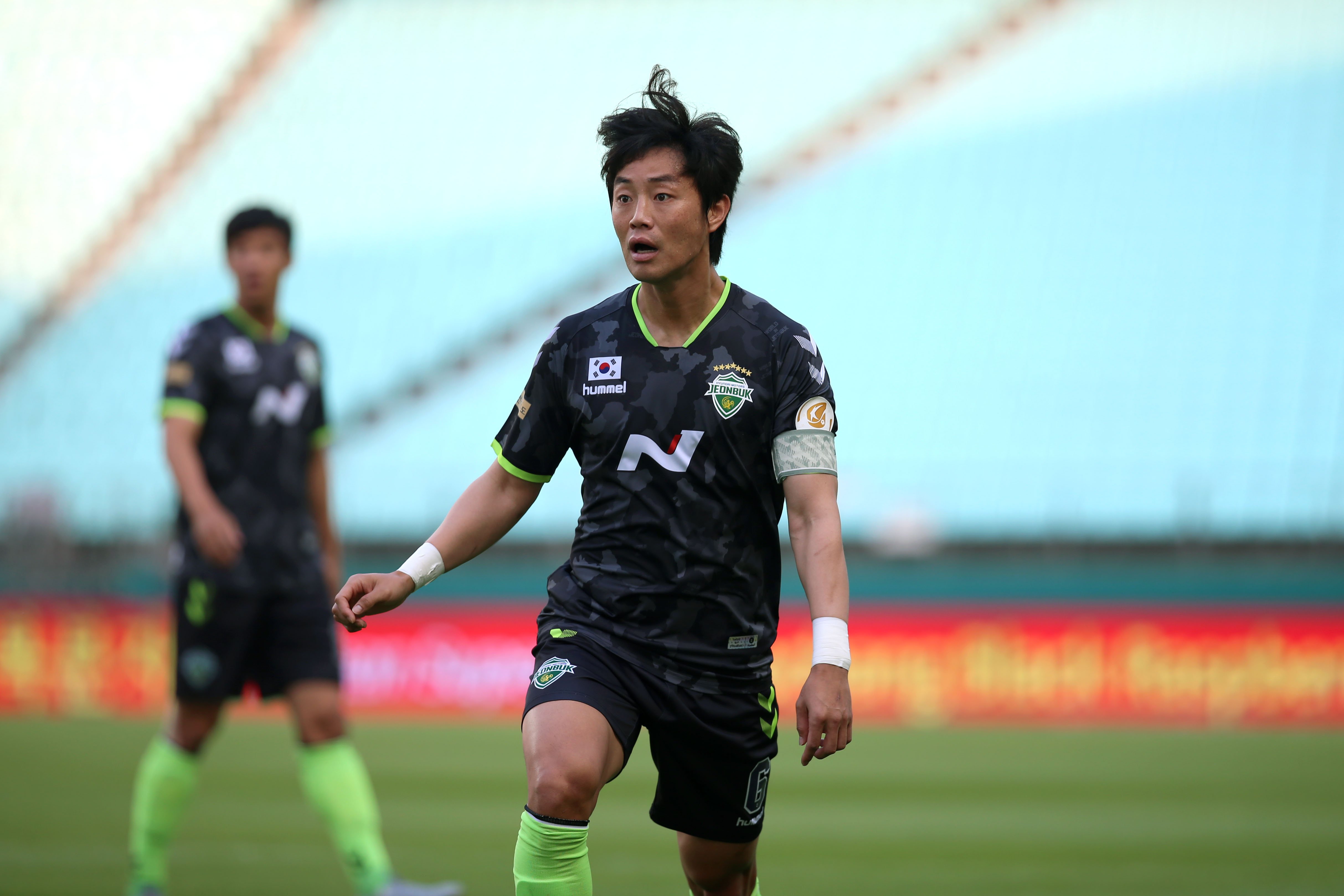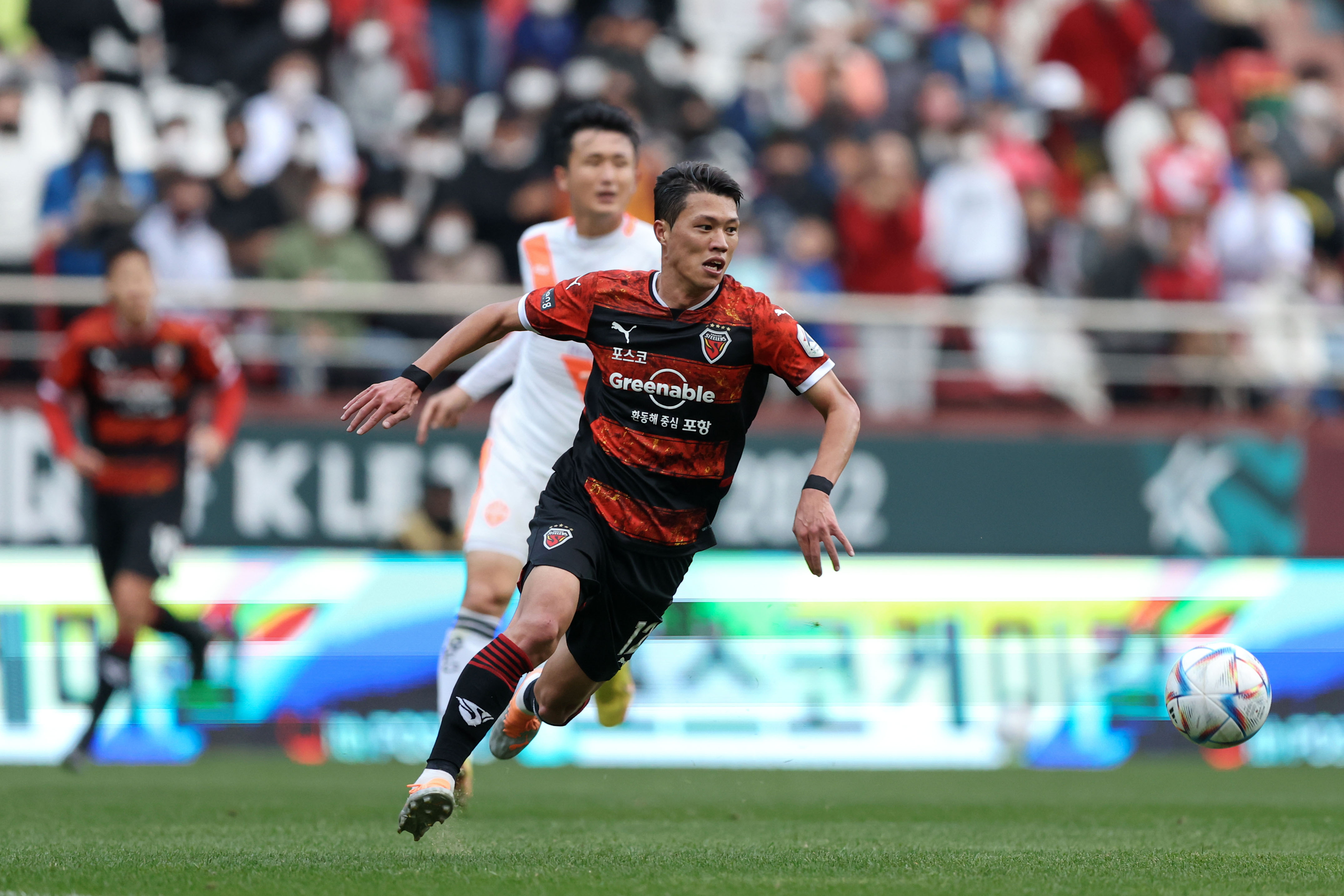Worthy of a Hall of Fame Wildcard?
The K League has recently announced the criteria for their newly created Hall of Fame and has selected the inaugural members. This exclusive club will feature the greatest footballers to have played in K League 1 and K League 2, but does the criteria capture every deserving player? George Slade looks at some notable players who currently would not qualify to enter, asking whether the Hall of Fame should induct occasional wildcards.
Criteria
In order to coincide with its 40th anniversary the K League decided to follow in the footsteps of many other leagues across the world and create a Hall of Fame of its greatest players. In order to ensure that only the best footballers would be eligible, qualifying criteria has been established.
Players must have achieved at least one of the following: played 300 or more games, scored 100 goals, kept 100 clean sheets, have been the top scorers or assist makers in a single season, players named in the season's Best XI, or have been the winners of the MVP award. All K League 1, K League 2, and K League Cup appearances, goals, and awards count towards the eligibility of an individual.
It is likely that using this criteria, K League will have no problem finding legends to induct for quite a few years. They have in fact announced the first four footballing entries: Choi Soon-ho; Hong Myung-bo; Lee Dong-gook; Shin Tae-yong. Joining them in the coaching category is Kim Jung-nam and in the contribution category is Park Tae-joon.
However, some people may think that there could be some gaps in the selection process. What about being a club legend? Or winning trophies? Or total career assists?
This article seeks to highlight some notable players from K League’s past who would likely have a case to be inducted should the Hall of Fame open their membership to wildcards every few years. Additionally, we will also take a look at some currently active players who could become eligible in the near future or risk just falling short.
Stevica Ristić
238 games, 87 goals, 25 assists
North Macedonian international Stevica Ristić forms part of a long line of players from the Balkans who have achieved success in the K League, especially in the position of striker. The 6 foot 2 inch 1982-born forward began his career for Serbian lower-division clubs Jedinstvo Vršac and Mladost Lukićevo before first moving to South Korean football in January 2007. This move saw him join Jeonbuk Hyundai Motors from North Macedonian club Sileks and he soon found form, scoring a career best 15 goals in all competitions in his inaugural campaign.
However, patchy form at the start of 2008 saw him loaned out to Pohang Steelers in the summer for a period of 18 months. This period would produce the most silverware in Ristić’s career, as he would go on to win the FA Cup, League Cup, and AFC Champions League by the expiration of the loan in 2009. Despite recovering his goalscoring form on the East Coast, Jeonbuk would see it fit to sell him to Uzbek club Bunyodkor in January 2010, where he would become teammates of Brazilian legend Rivaldo. They would both depart the club together in August 2010 after winning the Uzbek Cup, with Ristić moving to Russian club Amkar Perm for a year.
Ristić would then go on to spend the majority of the next five years in Korea, with two-year stints at both Suwon Samsung Bluewings and Jeonnam Dragons sandwiching a half-season spell at J1 League club Shonan Bellmare in 2013. He was scoring as many as 12 goals a season as late as 2015, meaning he could have reached 100 goals if he stayed a season or two longer, but by 2016 the call of home proved too great and he ended his professional career mid-season in 2016, though he did briefly play for lower-league Serbian club FK Temnić in 2017. He now serves as sporting director at his old club Sileks, a position he has filled since June 2022.
Stefan Mugoša
129 games, 68 goals, 11 assists
Born 10 years after Ristić and joining the K League at a similar stage in his career, Stefan Mugoša is part of a new generation of Balkan players that have lit up the K League through the years. While he may not reach the heights of his Montenegrin compatriot and fellow striker Dejan Damjanović, at the age of 31 Mugoša still has time to expand his legacy in South Korea should he choose to do so. It is certainly something that Incheon United fans and many neutrals would like to see.
The Montenegro international made his professional debut in 2009 for Podgorica club Budućnost, where he would earn winner’s medals in both the league and cup during a four-year spell. One season at cross-town rivals Mladost Podgorica would prove to be his breakthrough year as he would win the top tier golden boot and earn himself a move to Germany’s 1. FC Kaiserslautern. This would kickstart a nomadic era where he would turn out for Erzgebirge Aue, 1860 Munich, Karlsruher SC, and Moldova’s Sheriff Tiraspol within a three-year period, with the Moldovan league title in 2017 being his only trophy during this time.
It would be in January 2018 that Mugoša would finally recover the goalscoring form that saw him move abroad for the first time, upon his joining of Incheon United of K League 1. He would score a career-best 19 goals in his first season and would register double figures of goals every season except for 2021, in which he scored nine. Despite his consistent goalscoring form over a period of four and a half years, Mugoša was unlucky to be kept off of the top the goalscoring charts and out of the Team of the Year by a variety of talented strikers, though it is hard to think of a player who consistently scored goals of such importance for a single club.
Each of his first four seasons at the club featured a running storyline of Incheon United seemingly being certain candidates for relegation and every year his goals helped drag the team to safety. Mugoša would end up becoming United’s record goalscorer and his form directly laid the groundwork for their remarkable qualification for the AFC Champions League in 2022. By this point, however, he had already left the club after accepting a summer transfer offer from Vissel Kobe of J1 League. He has yet to score for his new employers, prompting wide discussion as to whether he will make a return to his second home in the not-too-distant future, perhaps in time for the Champions League campaign to begin.
Yoo Hyun
275 games, 76 clean sheets
Time is running out for 38 year old goalkeeper Yoo Hyun to earn the required number of appearances or clean sheets needed to achieve potential Hall of Fame status. Despite playing 11 games for Suwon FC in K League 1 last season, Yoo finds himself without a club at a time when the transfer window is about to close. However, in a country that only allows domestic goalkeepers to play, he still has hope of finding a new employer before deadline day.
After graduating from Chung-Ang University, Yoo was signed by semi-professional outfit Ulsan Hyundai Mipo Dockyard FC of the National League in January 2007. Strong performances there saw him move up to the professional ranks of the K League, joining the newly created Gangwon FC along with his Ulsan Mipo manager Choi Soon-ho. Yoo made history as their first ever first-choice goalkeeper, a position he would hold for three seasons. He would then be involved in a swap deal to head to Incheon United ahead of the 2012 season with Song Yoo-geol moving in the opposite direction. After a year at Incheon Yoo would see himself move to Police FC for his national service, returning to Incheon in September 2014.
His 2016 transfer to FC Seoul would lead to the first time in Yoo’s career where he would not be the clear number one goalkeeper at a K League club. However, it would see him become K League champion, the only trophy he has won since his two leagues and one cup triumph at National League level with Ulsan Mipo. His first two seasons at the club would feature rotations between him with colleagues such as Yu Sang-hun and Yang Han-been, though in 2018 Yoo would not play a single match all season.
Lack of game time at FC Seoul ultimately led to Yoo moving abroad for the first time in his career, to Japan’s Tochigi SC of the J2 League in 2019. One of the best seasons of his career followed, with 10 clean sheets in 34 appearances, leading to an immediate return to his homeland one year later, joining Suwon FC of K League 2. Yoo played an important part in their promotion campaign and featured regularly in two K League 1 seasons before being released this winter.
Yun Il-lok
265 games, 43 goals, 37 assists
One of the most promising Korean players in his youth, Yun Il-lok has played for every level of the South Korean national team since his U17 debut in 2008 at the age of 16. The 31 year-old has gone on to win several caps for the senior side, winning two EAFF E-1 Championships to go alongside his 2014 Asian Games gold medal with the U23 side. Meanwhile, at club level, he has had several stints abroad while enjoying his greatest successes in the K League 1.
Yun made his professional debut with Gyeongnam FC in 2011 and scored his first goal only a month later. He became an immediate first team regular in his two seasons at the club, catching the attention of FC Seoul. In his five-year tenure at the capital club, he would earn winners’ medals with the 2015 FA Cup and 2016 K League 1. During this period, Yun experienced some of the best form of his career. For example, in 2017 he produced a career-best 12 league assists, which would have given him the K League Top Assist Provider Award in all but nine of the K League’s 40 seasons. Son Jun-ho’s 14 assists pipped Yun to the title.
Yun’s good form would not go entirely unnoticed however, because in January 2018 he would move abroad for the first time in his career. That move would take him to Japan, playing for Yokohama F. Marinos of J1 League. His form during his debut season would quite reach the heights of previous seasons, though, and he would find himself being loaned back to the K League 1 at Jeju United. Yun would prove to be one of the only positives in a season to forget for Jeju, as he finished as the club’s top scorer with a personal career best of 10 goals in a season while they suffered relegation for the first time in their history.
Positive K League form enabled Yun to move abroad again, this time to French Ligue 1 club Montpellier HSC in January 2020. Unfortunately for him, his time in France would produce no goals or assists, and 18 months later he would return to his homeland, this time to Ulsan Hyundai in July 2021. Although not a consistent starter at the club, he has already registered more goals and assists there than his times in Japan and France combined and he was able to add another K League 1 title to his collection in 2022.
Choi Bo-kyung
207 games, 5 goals, 5 assists
There are many factors that have gone into Jeonbuk Hyundai Motors’ success in K League over the last 15 years or so. One of the biggest is that they have had a good track record of retaining players for many years, ensuring that a strong nucleus within the squad remained no matter how many comings and goings there were every transfer window. Choi Bo-kyung is a prime example of this, remaining at Jeonbuk for a period of nine years and winning an assortment of trophies – seven K League titles and two FA Cups to be precise. What makes Choi’s case interesting is that he is probably the most successful K League player of all time who has not yet qualified for a Hall of Fame spot. However, his recent transfer to Suwon FC means that there is still time for the soon-to-be 35 year-old to achieve this status.
After attending Dongguk University, Choi began his professional career in 2011 with Jeonbuk’s rivals Ulsan Hyundai. In his three years on the east coast he would claim winners’ medals for both the 2011 K League Cup and 2012 AFC Champions League before going on to achieve a breakout season in 2013, coincidentally his only trophyless year as a professional player, when he started to become a rotation player for the first team. It was this season that tempted Jeonbuk to make a move, leading to his transfer in the winter of 2014. From that point on Choi would remain in that rotational role, regularly making first team appearances but never fully cementing himself as a week-in week-out starter, winning two K League 1 trophies in these first two years at the club. He also earned himself a call-up to the South Korea national side, but he did not gain a cap as he remained on the bench for a FIFA World Cup qualification win over Myanmar.
This trend of being a rotation player even continued when he moved to Ansan Mugunghwa in 2016 in order to complete his national service, although he would at least play a part in that year’s K League 2 title win. In 2017, after the police club had moved location in order to become Asan Mugunghwa, Choi would return to Jeonbuk to take part in the end of their league championship win that year, beginning a personal run of five consecutive top tier trophy wins. The following year he experienced his most successful season in terms of number of appearances, playing 41 matches in all competitions including 32 league games.
After that season the central defender would experience increasingly fewer matches per season, culminating in only 13 appearances in all competitions in 2022. However, his trophy cabinet would still expand, winning his first two FA Cup titles in 2020 and 2022. The decline in appearances is what led to Choi’s release from Jeonbuk at the end of last season, but his obvious qualities despite his age is what has led to Suwon FC, a club that has finished close to AFC Champions League qualification over the last two seasons, signing him on a one season contract.
Honourable Mentions
Of course, every footballer in Korea could become eligible for the Hall of Fame through having a good season where they win an award or top a scoring chart. Others look set to become eligible through their career statistics this year. For example, Seongnam FC striker Lee Jong-ho currently sits on 272 games played and 61 goals, meaning a season of being a first team regular will see him gain eligibility. Meanwhile, recent Pohang Steelers signing Kim In-sung is even closer, being only 17 matches away from reaching the 300 mark. Coincidentally, Kim’s teammate Kim Seung-dae is only about two seasons away from reaching the total himself, with him being on 239 appearances.
Some players will remain forever slightly out of reach of the criteria. For example, centre-forward Park Sung-ho, who retired in 2018 after a career that featured spells at clubs such as FC Seoul, Pohang Steelers, Ulsan Hyundai, Vegalta Sendai, and Yokohama FC, only managed to earn 299 appearances in the K League. Meanwhile, almost 36 year-old unattached goalkeeper Park Jun-hyuk looks set to remain on 80 clean sheets in 251 games, unless he can step back up to the top two divisions after spending last season in the K3 League.














![[about]](https://blogger.googleusercontent.com/img/b/R29vZ2xl/AVvXsEh0mXcKy7h0fXIgdvWFm5DpFfwXkPr2ggzUt9_AoPo8vS0HOsFMT8KsO21qTLZBKoLyQXSOAckzy4OtJCPOoHtL5cGqAa0zXKzIdiW45D6TCFAisfJUODssBTfrkat95GXhJc8haWSP3nyV/s1600/KLU.png)
No comments:
Post a Comment